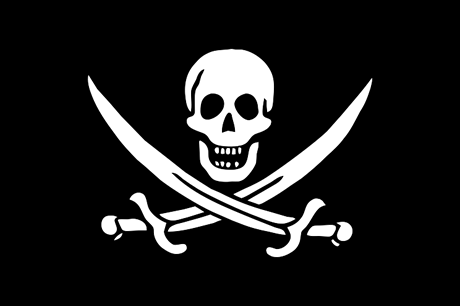Software piracy in the Czech Republic dropped 1 percentage point in 2010 to a record low 36 percent, and caused a Kč 3.7 billion revenue loss for software makers. The Slovak piracy rate also fell 1 percentage point to 42 percent, according to global report from the Business Software Alliance (BSA) in collaboration with analysis firm IDC. The European Union piracy average was 35 percent, while the global average was 42 percent.
Both the Czech Republic and Slovakia are far below the Central and Eastern European (CEE) average of 64 percent. Georgia had the highest rate, 93 percent, and Moldava, Armenia, Belarus, Azerbaijan and Ukraine were all above 85 percent. Russia, though, accounted for the highest regional revenue loss of some $2.84 billion. Its piracy rate was 65 percent. The total loss for the CEE region, including the Czech Republic, was $5.5 billion.
On the other end of the scale, the US, Japan and Luxembourg had the lowest piracy rates, some 20 percent. The US though, as the world’s largest economy, had the highest worldwide monetary loss, $9.52 billion, followed by China with $7.78 billion.
“The Czech Republic reduced its piracy rate for the third year in a row. It is the only country in Central Europe that has been so successful. Despite this, the value of pirated software increased by almost Kč 400 million,” BSA spokesman Jan Hlaváč said in a press release. “We have successful police enforcement and public education has delivered results. … Moreover, reducing piracy benefits the national economy.”
The most common way to spread pirated software is to buy only one software license and then install the program on multiple computers. “This type of piracy has long been the most common in companies, but is beginning to expand into the household,” Hlaváč said. ‘It is clear that public attitudes are changing; in the past, protecting intellectual property did not have such support.’
Some 72 percent of Czech respondents to a related survey by polling agency Ipsos Public Affairs also released by BSA said they were willing to pay the creators of software for their work and to promote further development, while 75 percent said protecting property rights helped to boost creativity, and 62 percent said protecting copyrights helped the domestic economy. “It is clear that public attitudes are changing; in the past, protecting intellectual property did not have such support,” Hlaváč said.
People also saw a positive value in buying licensed software due to technical support (90 percent), protection from malware (80 percent), reliability (75 percent) and functionality (64 percent).
But large numbers of Czech respondents to the Ipsos survey still had some misconceptions. Some 69 percent said it was acceptable to buy software from an online auction and 54 percent saw no problem with installing software at home on multiple computers with only one license (but only 44 pecent said it was OK to do this at work). Obtaining software online using a peer-to-peer (P2P) network was seen as all right by 45 percent.
Big drop from 1994 rates
In the long-term, pirated software rates have fallen significantly since 1994, when figures were first tracked. Both the Czech Republic and Slovakia had a 66 percent piracy rate then. Among the EU-27, the Czech Republic is now in 11th place for the third year in a row, while Slovakia is in 15th place. The highest piracy rates in the EU are in Bulgaria (65 percent), Romania (64 percent) and Greece (59 percent). The only EU countries to see increases in 2010 were Spain, Slovenia and Greece.
One reason for an overall fall in piracy rates is that laptops are taking an increasing market share. “Laptops tend to have more legitimate software bundled with them at the point of sale than do desktops, and they account for an increasing share of the PC market. Laptops represented 46 percent of PCs in use around the world in 2010, up sharply from 35 percent in 2008,” the BSA report stated, adding that “white box” suppliers who build computers from parts and fill them with unlicensed software have seen their market share decline from one-third to one-fifth over the same period.
Stagnation in the EU
But 15 countries in the EU showed no change over the previous year, and the overall rate of 35 percent was also unchanged. The 2010 loss of $13.5 billion, while a year earlier it was $12.5 billion. “"The study finds software piracy rates at a standstill in the EU, and particularly in the larger, western European member states where little progress has been made in the past five years even as the value of stolen software compounds year-on-year,” said Thomas Boué, BSA government affairs manager for Europe. “There have been few strides in recent years in addressing intellectual property protection, and with momentum building, the time is now to take steps to protect Europe’s €715 billion ICT industry and its contributions to the European economy.” ‘We are confident that the European Commission can address this growing problem through aggressive public education.’
The increase in the losses due to piracy has some people calling for stronger action. “Software theft damages the software industry, harms EU economies and stymies EU job creation. We are confident that the European Commission can address this growing problem through aggressive public education and helping the ensure effective enforcement of the legal framework throughout the European single market,” Robert Holleyman, president and CEO of BSA, said in a press release.
Globally, half the areas in the survey had piracy rates higher than 62 percent. The piracy rate dropped in 51 of the 116 geographies studied in 2010 and went up in only 15. “But, crucially, regional average rates rose by 1 point in both Asia-Pacific and Latin America — two economic hotbeds of the developing world,” the report stated.
The BSA study covers 116 countries and regions. The BSA Global Software Piracy Study calculates piracy of all software that runs on personal computers — including desktops, laptops, and ultra-portables, including netbooks, according to the report. It includes operating systems, systems software such as databases and security packages, business applications, and consumer applications such as games, personal finance, and reference software. The study also takes into account the availability of legitimate, free software and open-source software, which is software that is licensed in a way that puts it into the public domain for common use.
BSA is an industry group with a mission to promote conditions where the information technology (IT) industry can thrive and contribute to the prosperity, security, and quality of life of all people, according to its website.
| Rank | Year-on-year change (in percent) | 2010 (percent) | 2009 (percent) | 2010 loss (in millions of $) | 2009 loss (in millions of $) | |
|---|---|---|---|---|---|---|
| Luxembourg | 1 | -1 | 20 | 21 | 31 | 30 |
| Austria | 2 | -1 | 24 | 25 | 209 | 212 |
| Belgium | 3 | 0 | 25 | 25 | 233 | 239 |
| Finland | 4 | 0 | 25 | 25 | 193 | 175 |
| Sweden | 5 | 0 | 25 | 25 | 411 | 304 |
| Denmark | 6 | 0 | 26 | 26 | 208 | 203 |
| Germany | 7 | -1 | 27 | 28 | 2,096 | 2,023 |
| UK | 8 | 0 | 27 | 27 | 1,846 | 1,581 |
| Netherlands | 9 | 0 | 28 | 28 | 591 | 525 |
| Ireland | 10 | 0 | 35 | 35 | 137 | 125 |
| Czech Republic | 11 | -1 | 36 | 37 | 195 | 174 |
| France | 12 | -1 | 39 | 40 | 2,579 | 2,544 |
| Portugal | 13 | 0 | 40 | 40 | 228 | 221 |
| Hungary | 14 | 0 | 41 | 41 | 131 | 113 |
| Slovakia | 14 | -1 | 42 | 43 | 63 | 65 |
| Malta | 16 | -2 | 43 | 45 | 6 | 7 |
| Spain | 17 | 1 | 43 | 42 | 1,105 | 1,014 |
| Slovenia | 18 | 1 | 47 | 46 | 47 | 39 |
| Cyprus | 19 | 0 | 48 | 48 | 17 | 16 |
| Italy | 20 | 0 | 49 | 49 | 1,879 | 1,733 |
| Estonia | 21 | 0 | 50 | 50 | 23 | 19 |
| Lituania | 22 | 0 | 54 | 54 | 38 | 31 |
| Poland | 23 | 0 | 54 | 54 | 553 | 506 |
| Latvia | 24 | 0 | 56 | 56 | 30 | 24 |
| Greece | 24 | 1 | 59 | 58 | 301 | 248 |
| Romania | 26 | -1 | 64 | 65 | 195 | 183 |
| Bulgaria | 27 | -1 | 65 | 67 | 113 | 115 |
| EU 27 | 0 | 35 | 35 | 13,458 | 12,469 | |
| World | -1 | 42 | 43 | 58,754 | 51,443 | |
| Source: BSA, IDC | ||||||




